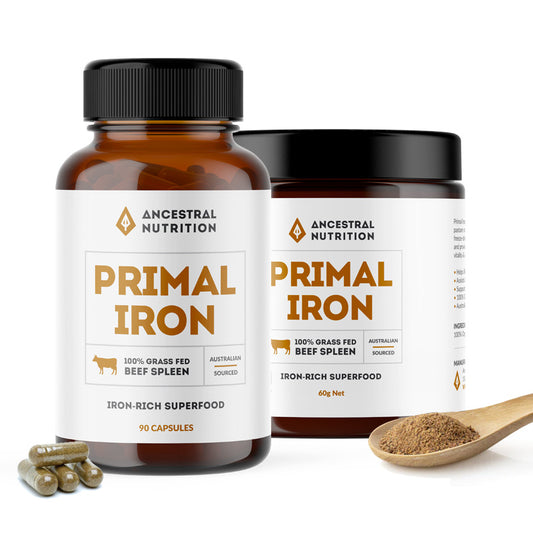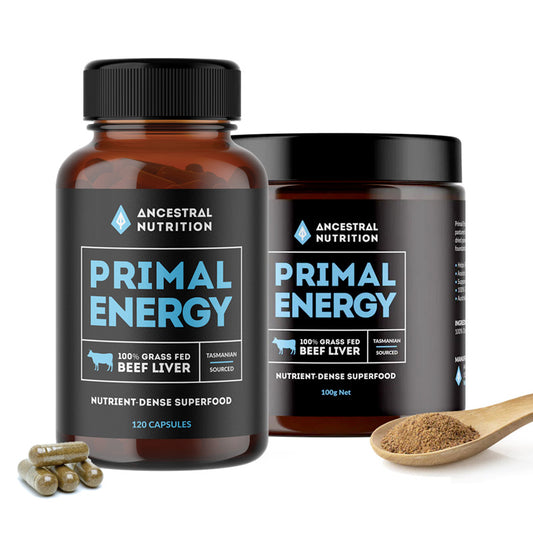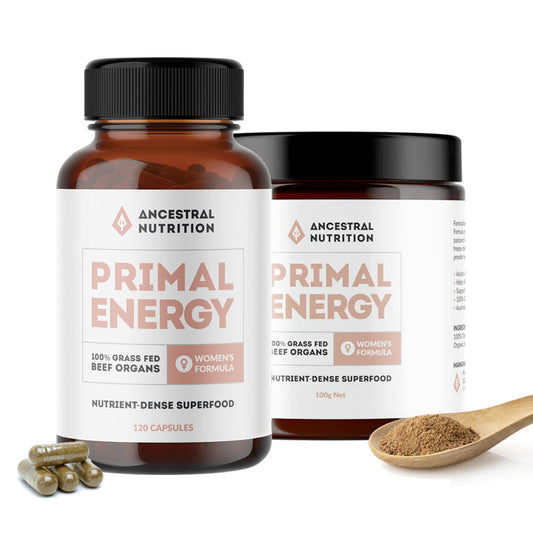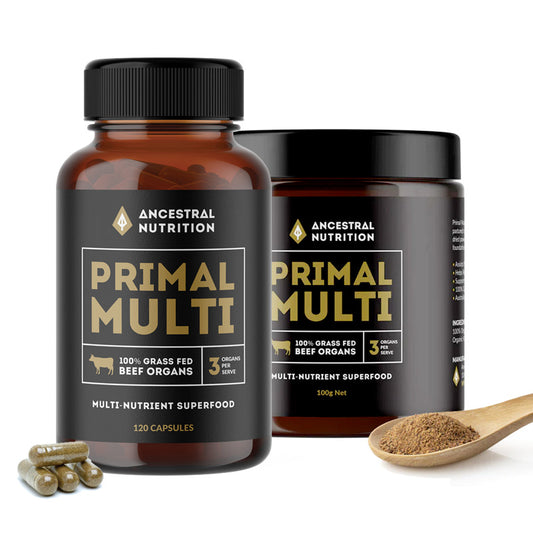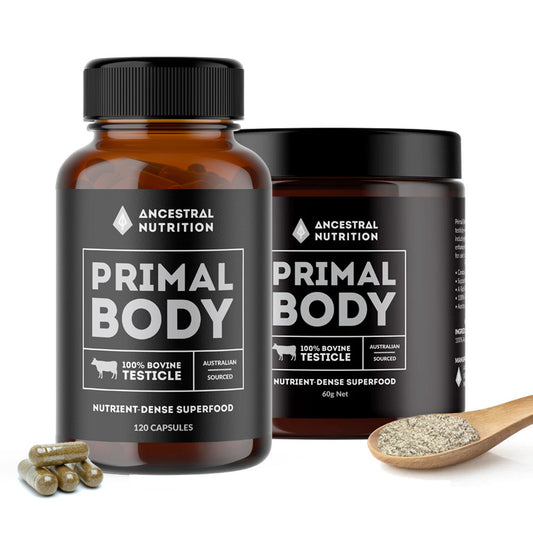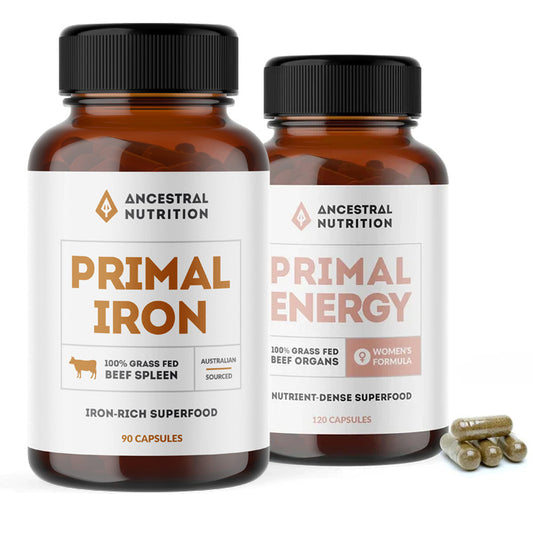3 Simple Ways to Improve Nutrient Absorption
article by Emily CollyerYou made the switch to a more whole foods diet, so why are you still feeling flat?
Three Factors Affecting Nutrient Absorption
Issues such as gut inflammation, low stomach acid, or insufficient digestive enzymes can reduce your ability to break down food and extract nutrients effectively. After all, most of our nutrients are absorbed in the small intestine and stomach.
Some nutrients need to be converted by enzymes before your body can use them, meaning certain forms are easier to absorb than others. For example, whole-food sources like beef liver (or beef liver capsules) naturally contain folate in it's active form - ideal for those who have reduced enzyme activity or can't convert folate from other sources (for example, MTHFR gene mutation). Iron is another example: it exists as heme iron (found in red meat, liver and spleen) and non-heme (found in plants and supplements). Heme iron is more bioavailable and easier to absorb.
Case Example: Why A Healthy Diet Fell Short
Supporting Nutrient Absorption
- Supporting Gut Health: Consuming probiotic and prebiotic foods may help maintain a balanced microbiome. Minimising irritants such as excessive alcohol or highly processed foods may be beneficial.
-
Supporting Digestive Function: Adequate stomach acid and digestive enzymes assist in breaking down food for nutrient absorption. If digestion is a concern, consultation with a healthcare practitioner is advised.
-
Including Dietary Fat: Consuming healthy fats alongside foods rich in fat-soluble vitamins (A, D, E, and K) may support their absorption.
-
Balancing Co-Factors: Ensuring intake of minerals such as magnesium, zinc, copper, and B vitamins through whole food supplementation if necessary.
-
Minimising Nutrient Blockers: Limiting excess caffeine, alcohol, and certain medications at appropriate times may help optimise absorption.
-
Personalising Nutrition: Individual digestive and metabolic needs vary. Professional nutritional guidance can help tailor nutrition strategies.
Shifting the Nutrition Conversation: From Quantity to Quality Within
Have questions about your diet? Connect with Emily



